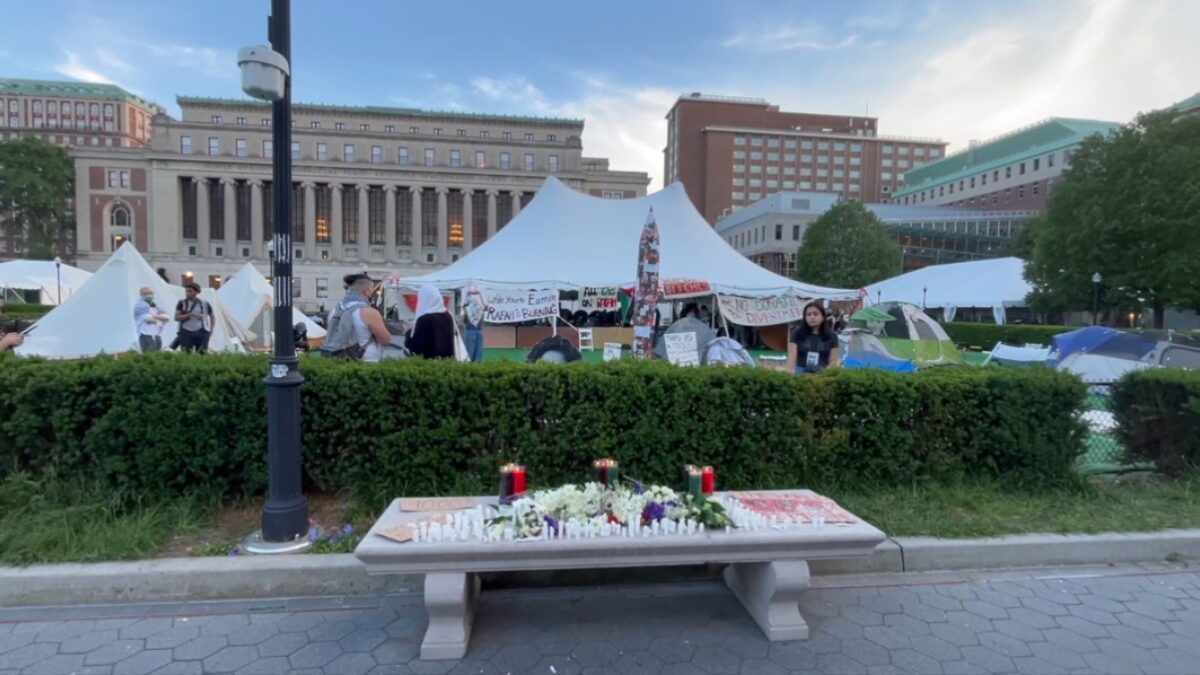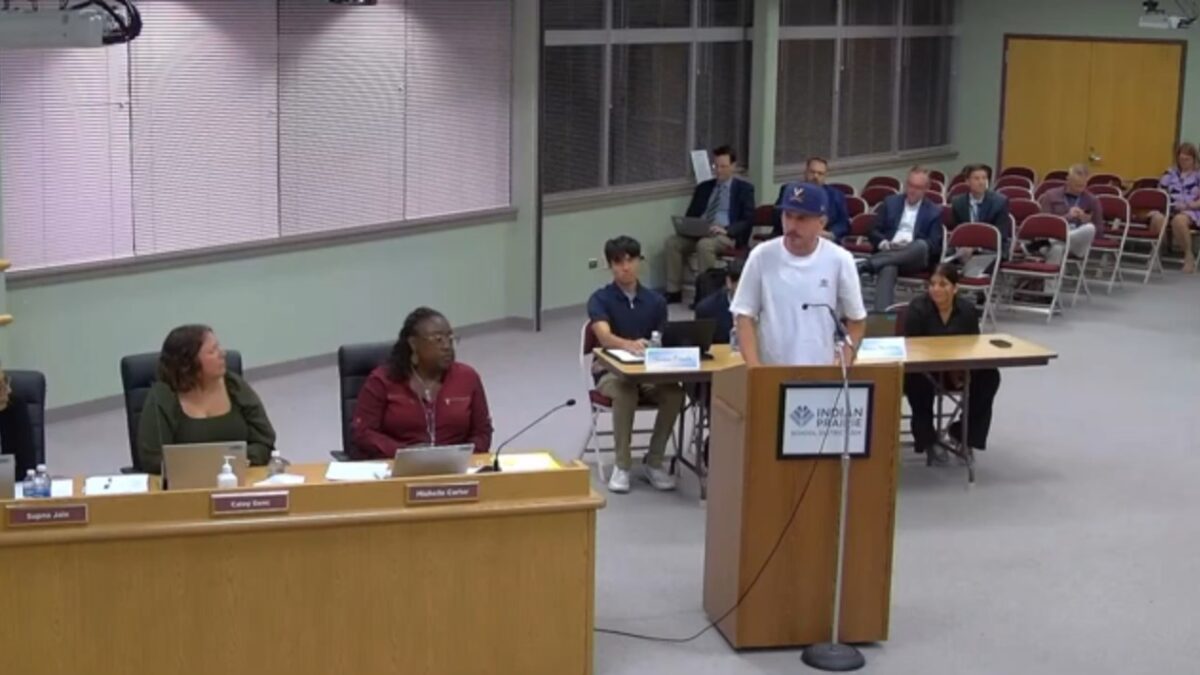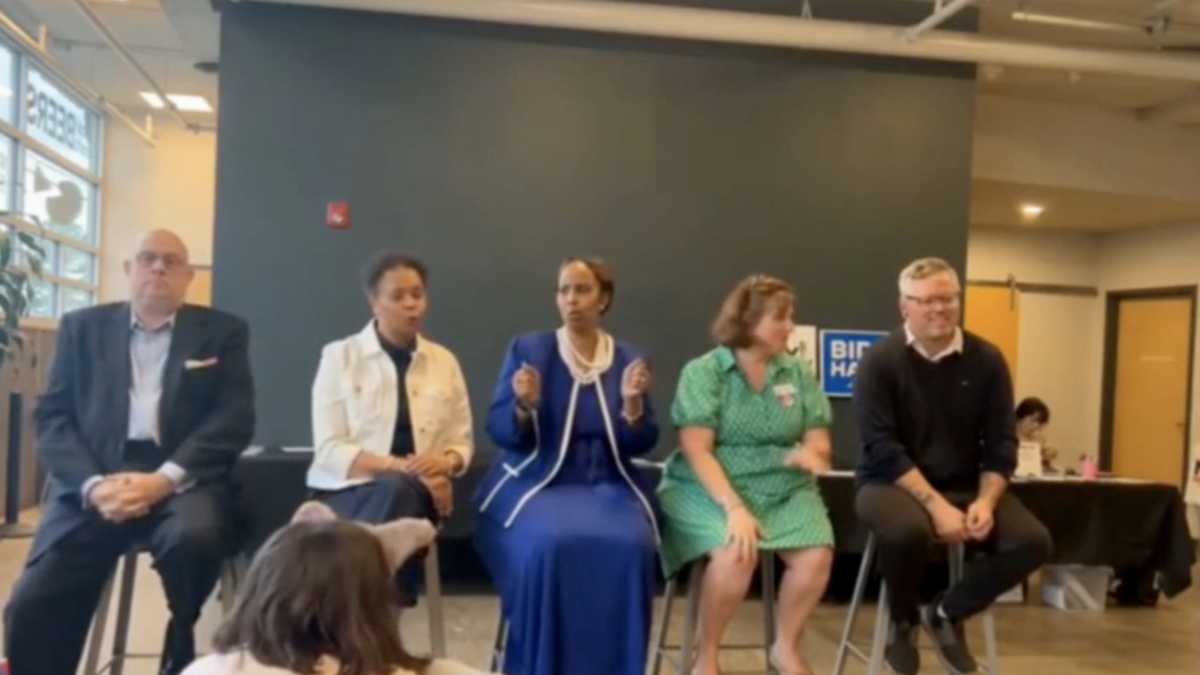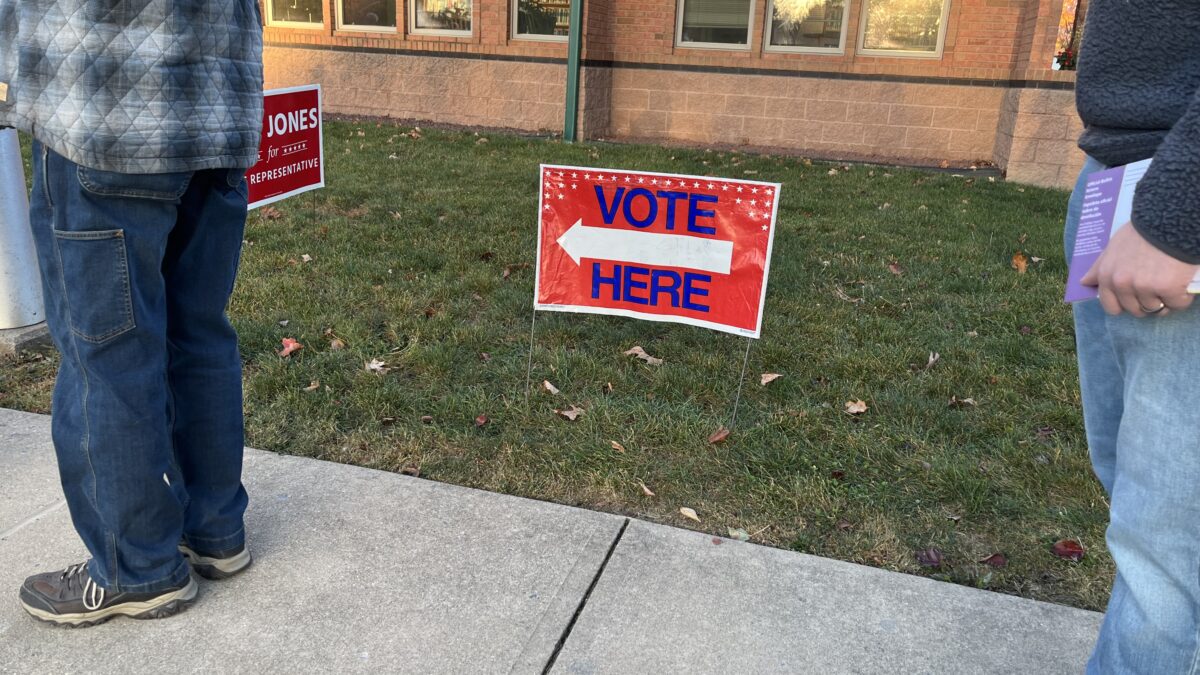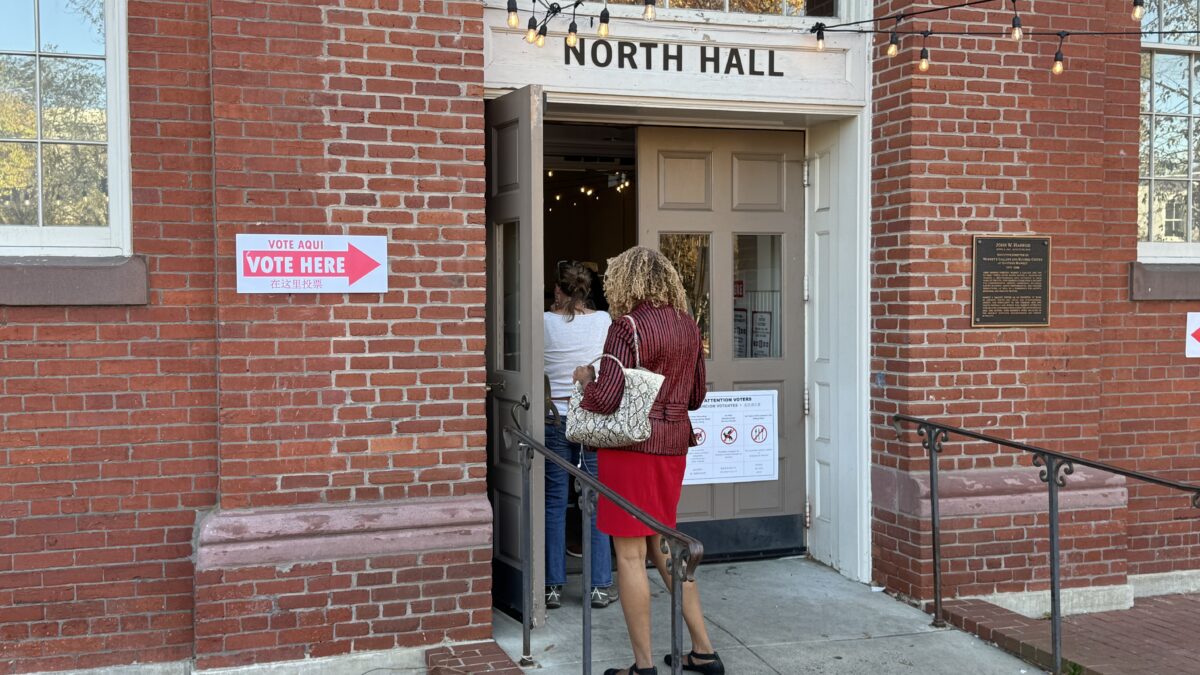
Moral indignation is a powerful tool—and on today’s college campuses an increasing number of high-ranking officials are employed almost solely to wield it. Take, for instance, Bowdoin College’s Timothy Foster, dean of student affairs. On December 9, 2014, he issued a campus-wide e-mail to, as he put it, “express my personal frustration and my disapproval of harmful behavior by students who should know better.” Fourteen Bowdoin students had acted with “conduct unbecoming of a Bowdoin student.” They had dressed up as Native Americans and Pilgrims at a Thanksgiving party.
“What can we do?” Foster asked. “What can we do when we educate about prejudice, ignorance, and insensitivity but continue to have people who engage in behavior that is hurtful and demeaning to others?”
He had an answer: “One thing we can do is to say loudly, clearly, and repeatedly that this behavior is not okay.” The 14 students would be punished forthwith. Their crimes, in fact, were so patent and so serious that Foster could bypass the normal disciplinary tribunal and move directly to the sentencing phase. We don’t yet know exactly what that sentence was. Foster explained what it wasn’t: the students would not be expelled. This serves as a nice elaboration of the Red Queen’s dictum: “Sentence first! Verdict afterwards.” Secret sentence first, followed by straightaway informing the entire student body.
Student Life Dean: The Modern Substitute for Chaplain
“The message must be clear: Bowdoin will not condone or tolerate behavior that divides our community and denigrates others.” Then he cast the costume party—on Harpswell Road, Brunswick, Maine—against the backdrop of Ferguson and Staten Island: “At this moment in America, as tensions run high about race, class, and inequality, we must continue to learn from one another, to think before we act, and to take responsibility for our actions and our mistakes.”
Bowdoin is listed by U.S. News and World Report as the nation’s fifth-best liberal arts college. In our 372-page study of it, “What Does Bowdoin Teach?,” we found Foster called upon frequently by the Bowdoin administration to be the moral voice of the college. Lacking a college chaplain, and with a student life system in which students live quite far from their professors’ homes, Bowdoin turns to Foster as the arbiter of right and wrong. It is a complicated role. Bowdoin is inclined to be a genial host to a lot of behavior that Americans in general find dubious; but the college gets in high dudgeon on other matters.
Foster thus is called upon to modulate. He smiles benevolently on and even extols certain student behaviors. He frowns on others. The Thanksgiving punishment is unusual because it features both of Foster’s roles: scold and flatterer. The party was thrown by the men’s lacrosse team, at a rented house on Harpswell Road, known among the student body as “Crack House.” The event was called “Cracksgiving.”
College Officials Welcome Houses of Debauchery
“Crack House” has a tawdry reputation. A quick Google search of Crack House finds nothing to recommend it. For instance, one blog post names the basement of Crack “the Boom Boom Room.” An article on collegecandy.com titled “The Morning After” describes Crack House as “yes, it is as disgusting as it sounds.” Collegeniche.com reported, “The lacrosse team owns a house off campus, known as the ‘Crack House,’ and parties there are considered dirty but fun.” One commenter on talk.collegeconfidential wrote simply, “Just avoid Crack House.” An article on HerCampus.com tells of Bowdoin students going to “Crack House dressed as Disney Princesses ‘gone bad.’” One article by a Bowdoin student had the title, “Can You Believe She is Sober at Crack House?”
There are many places like Crack House in American academe—places you would not want your loved one to visit or to live. Generally, like Crack House, they are off-campus but nearby. They are centers of the seedy libertinism that places like Bowdoin surreptitiously trade in. College publications don’t mention them and they don’t come up when officials talk to parents, but every student knows about them within a week of orientation.
We can be sure that the folks at Crack House were not dressing as Native Americans and Pilgrims out of respect for either group or for the semi-sacred nature of this family holiday. They were prepping for another debauch, and profaning tradition was part of the fun. Everyone at Bowdoin knows that. What is interesting is that Foster registered no disapproval of that aspect of the event or the broader ambiance of debauchery for which Crack House stands. Crack House—students often call it simply “Crack”—may be an especially egregious case, but its morals differ little from those the campus turns a blind eye to in many other situations.
Debauchery Cool, Crossing Identity Groups Bad
Foster’s role as moral impresario is to model non-judgmentalism towards students’ sexual activities, drinking, and pleasure-seeking as long as everything is consensual. “Consent,” as we have learned in the last few years, can be a vexed question. How much drinking must occur before “yes” no longer means “yes”? But on the whole, Bowdoin is content to cultivate a soft libertinism, and Foster is perhaps the college’s leading adult champion of that ethic of “relax, explore, enjoy yourself, and don’t express disapproval of what anybody else does.”
But he also switches gears rapidly and hotly denounces acts he deems insensitive to one identity group or another. On sex, almost anything goes; on race, ethnicity, sexual preference, and other identity-group markers, however, the range of permissible views is tightly circumscribed. Foster is a man of this two-sided morality: relaxed towards the permutations of sexual desire and alcohol consumption; uptight on the permutations of group identity.
Students who attend a college such as Bowdoin must learn to navigate this terrain. It’s not always clear what one should be hot and cold about. Some student sophisticates learn to ape men like Foster, sliding here and there with ease; others firmly choose one camp or another, into either full-time heat, making identity causes the fullness of their education; more still drink from the cool, instrumentalizing, objectifying environs of Crack.
Some Choices Are Not Tolerated, But Good Luck Guessing Which
But, as the Thanksgiving punishment illustrates, these two sides of Bowdoin’s moral code can sometimes come into conflict, and not always to the advantage of Bowdoin’s minority students. In “What Does Bowdoin Teach?” we told the story of how, in 2012, Bowdoin completely reorganized its student housing because too many minority students were choosing to live in so-called “chem-free” dormitories; that is, dormitories where drinking is prohibited, generally known to be quieter places, more conducive to studying, and isolated from the heavy partying of the generally white students. As the Bowdoin Orient, the student newspaper, reported:
chem-free dorms have tended to be almost twice as socioeconomically and racially diverse as other dorms. Having all chem-free spaces in one building has, in practice, segregated a disproportionate number of international, minority and native Maine students. [Dean]Foster called the experience ‘a deprivation for the whole community.’
So the Bowdoin administration, led by Foster, developed a plan to abolish alcohol-free dorms, and to fold the minority students into the rest of the dormitory system. The college rejected a petition by students who lived in the alcohol-free dorms to halt the alterations, which, according to the council minutes, led some members of the Bowdoin student council to question whether the administration was “stealing diversity.” An unnamed student was recorded as saying, “Minorities aren’t attractions at the zoo.”
We see in this episode Bowdoin’s deep dedication to keeping these two wings of its moral vision together, even though they tend to drift apart. As Harvey Mansfield, a Harvard University professor of government, wrote in his review of the report, “Minority students made themselves the wrong sort of minority…and Bowdoin stomped on them.”
We’re Making Morality Up as We Go Along
Navigating the terrain of this new morality can be difficult. Foster himself sometimes appears to be confused by his role. He stumbled when he compared the Bowdoin Christian Fellowship advisory team to Jerry Sandusky, the child molester, because the advisory team upheld the traditional, Christian understanding of marriage. No one was quite sure what he meant. His aim was to denounce Christians for not affirming the gay identity group in the way he would prefer it be affirmed, but he ended up casting aspersions on the innocent.
Sometimes he just make things up as he goes, as when he decided to use a student organization, the Student Organization Oversight Committee (SOOC), to try a hazing case leveled against the Meddiebempsters, an all-male a capella group. When the Meddies complained that the SOOC had never before been used, never was imagined to be used, and was never was trained to be used this way, Foster explained that the SOOC was used because the case involved a “minor instance of hazing.” How that was a pertinent explanation wasn’t exactly clear. One thing was clear, though, that the SOOC ruled that this “minor incident” deserved a half-year suspension from singing at school events.
Sometimes Foster talks about student life as if it were alien from him and understood only in the abstract, as in his comments about the “traditions” of long-standing student groups. He affirmed that, “At Bowdoin, we value traditions, rituals, and rites of passage because they remind community members of their connections to one another and to the past and future of the College.” These comments were made in reference to his office’s new policy of reviewing group traditions and tutoring student leaders in how to alter them to make them more “inclusive.”
These are all signs of a man who has not perfected his posturing, isn’t always sure which way the wind is blowing, and doesn’t really know why he does what he does. But in the eyes of the Bowdoin community he’s good where it counts. He is a reliable backstop for students whose philosophy of life is dominated by satiating one’s appetite.
We’ll Do Penance About Identity Issues If You Let Us Party
Foster’s office is responsible for establishing the play “Speak About It” as a mandatory event for all first-year students at New Student Orientation. Students are told, “Whatever you decide you want your relationship with sex to be about there are opportunities out there. Whether you want to have sex or you don’t, you’re looking for love or a one night stand, you’re gay or straight or somewhere in between, it’s all possible.” Foster once explained the college’s commitment to the play: “We have tried many different approaches to talking about sexual assault awareness and prevention on our campus and each program left me feeling like we hadn’t quite hit the mark. Most notably, we had missed the opportunity to talk about how relationships can be healthy and good.”
Students no doubt like his managerial, therapeutic approach to campus drinking, as shown by his October 2012 letter to the Bowdoin student body, congratulating them on the fact that none of them had to be brought to the hospital for drinking too much alcohol. Here it is in full:
Dear Students,
It was another weekend free of an alcohol transport. The last transport occurred over a month ago on September 16.
I really admire the way people look out for one another at Bowdoin. It is part of what defines the culture of our community, but it all starts with personal responsibility and leadership. Thank you for stepping-up yourselves and thank you for stepping-in before a friend or peer needs to head to the hospital for a medical crisis.
Best regards,
Tim Foster
Dean of Student Affairs
There are some students at Bowdoin who applaud Foster’s stance on Cracksgiving and his larger campus pursuit of identity justice. But most are probably happy to nod their heads “yes,” affirming his denunciations, while he supplies them with condoms and turns a blind eye to their bacchanalia.
Rampant Moral Relativism and Posturing
Was Foster’s response to Cracksgiving the right one? In light of the nation’s history of racism, I am prone to believe accounts of racial injustice. When an entire group of people tell you, almost in unison, that they are being treated unjustly, and in ways that you might be blind to, it’s wise to pause, listen, and reflect. But that doesn’t relieve you of the crucial task of finding out the truth of events, especially when someone is accused of wrongdoing. You have to ask, ‘What really happened?’ ‘What was the spirit behind it?’
Foster’s e-mail to the student body made it clear that he had no interest in discovering whether the students at Crack House had actually done something immoral, or, in his Bowdoinese, something “harmful.” Instead, he gave a list of possible interpretations of the event. He wrote,
For some, wearing a headdress and ‘war paint’ on one’s face and bare chest is just harmless fun. For others, it is cultural appropriation that demonstrates poor judgment and insensitivity. And for others still, it is a racist act that perpetuates prejudice, promotes hurtful stereotypes, and demeans others.
Well, which is it actually? None of them? Perhaps some combination of the three? Foster doesn’t say. Instead, he says that students “should have known…that their actions would offend.” Meaning that what matters more is how their actions were received, rather than what their actions actually were.
It’s quite likely that the folks at Crack had nothing good in mind. But if moral rectitude is what Foster actually seeks, it behooves him to find out. And if he’s going to inform the entire student body that these students deserve punishment, he should state clearly what the moral wrong actually is. Anything less is just posturing.
But one bets that “Cracksgiving” was more about booze and sex than anything else. So no harm done—right?


